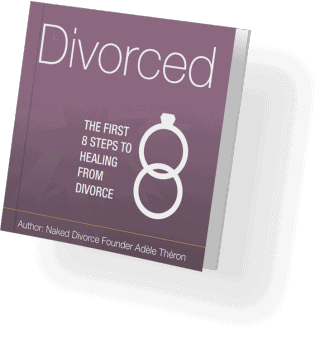
Free e-book: The First 8 Steps to healing from divorce
The People Pleasing Habit That Leads Straight to Divorce

I used to think I was just being “nice.” Agreeable. Supportive. The kind of partner anyone would want. I bent over backwards to make my marriage work — saying yes when I wanted to say no, putting my partner’s needs above my own, keeping the peace at any cost. But one day, as I sat in the quiet aftermath of another argument I never spoke up in, a question hit me like a punch to the gut: Was my People Pleasing behavior actually the very thing that destroyed my marriage?
What Is People Pleasing, Really?
The Gottman Institute — world-renowned for their work on relationships — defines People Pleasing as:
The act of chronically prioritising others’ needs, wants, and feelings at the expense of your own.
Sounds noble, right? Like selflessness or generosity. But here’s the catch — People Pleasing always comes with a hidden cost.
When you bend over backwards to please someone else, you’re not just being kind. You’re silencing your own voice, ignoring your own needs, and slowly waging war on yourself.
We have a saying at Naked Recovery:
“When we keep silent to keep the peace, we start a war inside ourselves.”
The Hidden Agenda Behind People Pleasing
On the surface, People Pleasing can look like love. But underneath, it’s often a learned strategy to gain approval, avoid rejection, or feel worthy of love.
Somewhere in childhood, many of us learned:
If I take care of everyone else, if I say yes, if I make myself responsible for their feelings… then I’ll be loved.
The problem? In a relationship, this pattern creates dangerous dynamics:
-
Codependency – One person becomes the constant giver, the other the constant taker.
-
Boundarylessness – Small infractions get ignored, big ones too, until all your personal limits dissolve.
-
Conflict Avoidance – You dodge hard conversations, missing the chance to truly connect and understand each other.
-
Resentment – Every unspoken “no” piles up until it turns into silent bitterness.
-
Losing Your Authentic Self – You show up as a version of you designed to be loved, not the real you who is lovable.
Why It Feels Safe but Isn’t
When you’re People Pleasing, you’re other-focused, not self-focused. It feels safer to keep your partner happy than to risk rocking the boat.
But in reality, this safety is an illusion.
By avoiding conflict, you avoid intimacy. By hiding your real needs, you hide your real self. And if your authentic self isn’t in the relationship, then who is your partner actually with?
Over time, the emotional distance grows. Resentment builds. The “peace” you’ve been protecting becomes a silent, cold war.
How This Played Out in My Marriage
Looking back, I see it clearly now:
-
The times I said yes when I meant no.
-
The moments I swallowed my truth to avoid “ruining the mood.”
-
The way I trained my partner to expect my compliance instead of my honesty.
I thought I was being loving. In reality, I was abandoning myself. And the more I disappeared, the more the relationship crumbled.
Breaking Free from the Pattern
Healing from People Pleasing isn’t about swinging to the other extreme and becoming selfish. It’s about learning to:
-
Honour your own needs as much as you honour your partner’s.
-
Set boundaries without guilt.
-
Embrace healthy conflict as a path to deeper intimacy.
-
Bring your whole, authentic self to the table.
Because here’s the truth:
You can’t build a lasting relationship on a false version of you. Love requires vulnerability — and vulnerability requires showing up fully, not just pleasing from the sidelines.
If you enjoyed this post, I’d be very grateful if you’d help it spread by emailing it to a friend, or sharing it on Twitter or Facebook.
With you in service,


For a more personalized approach to your healing journey, book a free Clarity Call now. Our coaches are here to help you take your first steps towards healing. Check out our Resources or our Videos on YouTube.

